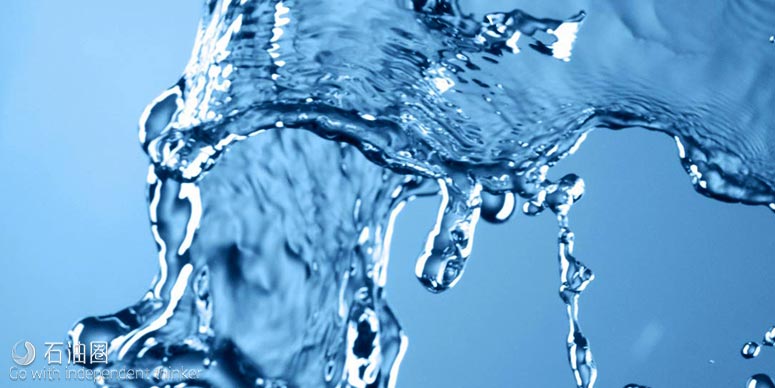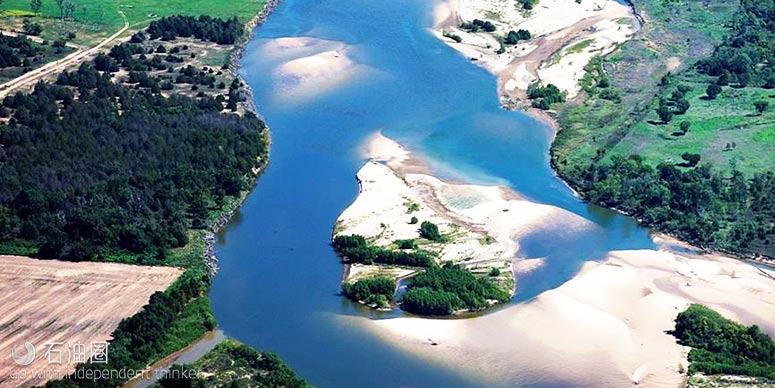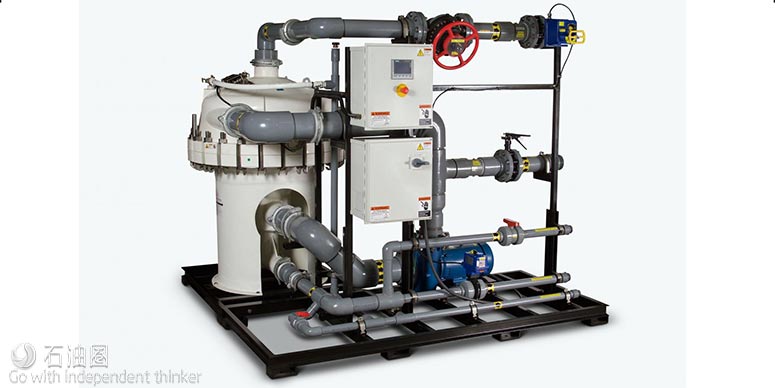The development of water sources for EOR; recycling of fracturing water; and management, treatment and disposal of produced water can result in substantial costs for oil and gas project operators.
A 2016 Columbia University and Barclays report said that unconventional drilling accounts for close to half of U.S. oil and gas production, and this production is dependent on reliable and sustainable access to water.
Additionally, according to Fountain Quail’s website, “Across all U.S. shale plays, an average of 12 barrels of water is produced for every barrel of oil. In 2015 approximately 66 million barrels per day flowed out of onshore U.S. oil and gas wells. By 2020 produced water volumes are expected to reach 92 million barrels per day.”
Mark Wolf, director of onshore facilities in the Process and Flow Technologies group for National Oilwell Varco, works extensively on the company’s water management technologies. “The shale players in the Permian Basin are leading the industry out of the downturn,” he told E&P. “There is not enough traditional water supply to sustain drilling and fracking activities, so water treatment, storage, and transportation and reuse of flowback water will be critical to the operators’ success.”
Michael Dunkel, vice president–water at CH2M, added, “I believe that water management for upstream will evolve substantially. Lower cost and more sustainable solutions will be developed over the next few years.”
The following is a sampling of some of the new technologies and products available for water management needs.
OKLAHOMA PRODUCED WATER STUDY ASSESSES ALTERNATIVES
In support of the Oklahoma governor’s initiative to reuse or recycle water produced in oil and gas operations, a report assessed the alternatives to injecting produced water from oil and gas wells into disposal wells in Oklahoma. The technical study, led by CH2M, investigated produced water volumes, water quality, top water users and water treatment costs. Ten representative cases were assessed by coupling a produced water user or alternative disposal method to an existing produced water source and evaluating the economics of each case to make recommendations. The costs for the 10 cases range from $0.57/bbl of water to more than $7/bbl of water. Key findings included the discovery that produced water reuse by the oil and gas industry is the most viable cost-effective alternative due to minimal water treatment needs and thus low treatment costs. Also, a special case of water reuse was evaluated using surplus produced water from the Mississippi Lime play area and conveying the water to sites in Blaine County for oil and gas reuse. The study also determined that due to low water treatment costs and potentially limited water conveyance requirements, evaporation technology could be a viable alternative to disposal. In addition, another key finding was that water treatment and desalination techniques are technically implementable but appear impractical at this time.
SELF-CLEANING FILTERS FOR PRODUCED WATER RECYCLING
TEQUATIC PLUS Filters are bringing the next generation in filtration capabilities to the oil field, helping companies protect disposal wells and achieve more economical recycling and reuse of produced water and fracturing flowback. The filters are designed to handle high solids even in the presence of oil, facilitating continuous filtration of particles down to 15 μ in water containing total suspended solids as high as 10,000 mg/L. The result is a high-uptime, low-maintenance option that can reduce worker exposure and the hazardous disposal headache related to consumable filters like bags and cartridges. The automated and continuous self-cleaning features of TEQUATIC PLUS Filters facilitate the handling of highly variable solids loadings and allow them to operate not only as standalone filters but also as protection for finer polishing steps. The compact nature and low-maintenance profile makes the filters well suited for mobile applications and remote oilfield sites. Consequently, companies have been adopting this technology, including one water service provider that is now recycling nearly 100% of its produced water.
PLATFORM MANAGES WATER PRODUCTION, TRANSPORTATION AND DISPOSAL
Digital H2O, a digital oilfield water management solutions company, recently expanded its Water Asset Intelligence service into Pennsylvania. The platform saves oil and gas service providers and midstream and E&P companies money by giving them the tools they need to efficiently manage water production, transportation and disposal. The service offers strategic and competitive intelligence on water disposal and provides data on oil and gas production from drilled wells, including well characteristics and historical production. Filters (e.g., geography, well type and operator) help users customize their analysis, and well-bywell analysis also is available. One of the platform’s most used features is the water transfer module, where clients can analyze where disposal water is going and discover usage information about disposal wells. “Another new feature we are adding to the Marcellus/ Utica in the coming weeks is transparency into recycling centers. Recycling is also a huge part of the water life cycle in Appalachia,” said Susan Olson, managing director of Digital H2O. In addition to Pennsylvania, Water Asset Intelligence already covers the Permian shale regions in Texas and New Mexico and the Bakken in North Dakota.
SYSTEM REMOVES IRON, TSS AND HYDROCARBONS
To be able to rely on produced water from multiple sources, producers have identified some common key performance metrics for treating produced water to make it suitable for fracturing supply. These metrics typically include iron removal, total suspended solids (TSS) removal, hydrocarbon removal and bacteria disinfection. H2S, where encountered, must be safely eliminated. Another key goal is to keep solids from settling out in pits and containment tanks. Fountain Quail has developed the new generation ROVERXL platform. The ROVER chemical clarification system was developed more than 15 years of pretreatment experience ahead of the company’s NOMAD evaporator systems. Fountain Quail found it to be the lowest operating cost and most adaptable system to effectively remove iron, TSS and hydrocarbons. Solids are removed as a dry cake for disposal. The ROVERXL also features a new flotation section that allows improved hydrocarbon removal. The platform will have 150% of the capacity with a similar footprint (two 15-m [48-ft] long trailers). In addition, one of the largest costs associated with recycling is manpower, so the ROVERXL is designed to be completely automated and failsafe to reduce manpower requirements.

 石油圈
石油圈



